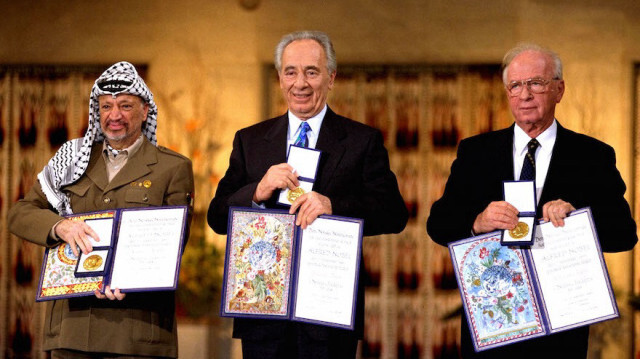
Israel’s behaviour in Gaza and the West Bank reveals a settler-colony unable to engage with the original inhabitants of these regions, except only through the regular forcible removal of Palestinians and the appropriation of their lands. What may very well be considered ethnic cleansing has been a tool for deliberately engineering a demographic change in the run-up to Israel’s foundation in 1948 continuing up to the present-day.
What appearances has colonialism taken in the twenty-first century? The stinging analysis of ‘neo-colonialism’ by Kwame Nkrumah, the pan-Africanist revolutionary who was Ghana’s first prime minister, can go a long way to answer this question. Formal political independence in Africa and Asia often provided a smokescreen for continued, deliberate and systematic economic dependence in the form of the transfer of natural resources from the periphery to the core, a phenomenon highlighted by the Marxist theorists Immanuel Wallerstein and Samir Amin. In the Middle East, however, a mix of economic dependency and direct colonial subjugation can be found in sharp relief in Israel’s treatment of the Palestinians. The Oslo Accords, signed in 1993, divided the West Bank into three zones, Areas A, B and C, that have left almost two-thirds of it, namely Area C, under Israeli administrative and military dominion with the entire region’s economy also in its hands. Israeli-backed Jewish settlements in the Occupied West Bank continue to be built and expanded in brazen contravention of international law.
Israel’s behaviour in Gaza and the West Bank reveals a settler-colony unable to engage with the original inhabitants of these regions, except only through the regular forcible removal of Palestinians and the appropriation of their lands. What may very well be considered ethnic cleansing has been a tool for deliberately engineering a demographic change in the run-up to Israel’s foundation in 1948 continuing up to the present-day. Nur Masalha and Ilan Papper, both world-renowned historians of contemporary Palestine, both observe that the Nakba (‘Catastrophe’), the ethnic cleansing that accompanied the founding of Israel, forced three-quarters of a million Palestinians to flee on pain of violence and death, and unable to return due to military diktat. A second Nakba or Naksa (‘Defeat’) in 1967 led to the creation of more than 300,000 Palestinian refugees, some of whom were already refugees from the first Nakba. Palestinian national identity is rooted at once in ties to land and a painful sense of exile generated by dispossession of that very land through wars. For this very reason, the Oslo Accords of 1993, despite withholding the creation of a sovereign Palestine, represented a real attempt on the part of Yasser Arafat and the PLO (Palestinian Liberation Organisation) at a compromise - to imagine Israel as a neighbour rather than an enemy of the Palestinians.
Since Oslo was signed, however, Yitzhak Rabin, the then Prime Minister, and Arafat, the late charismatic champion of the Palestinian liberation struggle, suffered fates unbecoming of winners of the Nobel Peace Prize. Rabin was assassinated in 1995 following an anti-Oslo campaign within Israel, which raised incendiary rhetoric that Rabin was a ‘traitor’ and demonised him as a Nazi. This campaign was led by the leader of the opposition, one Benjamin Netanyahu, who on one occasion led a march with a black coffin displaying the message that ‘Rabin is killing Zionism.’ Arafat was made a virtual prisoner at his headquarters in Ramallah by the Israeli army in 2002, only with the concession that he could leave to receive medical treatment in Paris where he later died in 2004.
The current situation of the Occupied West Bank is equally dismal. With the greater part of the region under complete and direct Israeli domination, the number of Jewish settlers has grown exponentially since the time of Oslo. Volker Türk, the UN’s High Commissioner for Human Rights, in a recent report put the figure of settlers illegally residing in the West Bank at 700,000. The assumed equivalence in the language surrounding the ‘two-state solution’ in much of the international press and even among politicians within the Middle East is at best short-sighted and at worst disingenuous.
A colonial relationship of economic dependency, land appropriation and entrenched military occupation has generated a situation in which Palestinians occupy a position less than that of ‘native’ – they simply do not or should not exist as a nation. The claims of nationhood about Israel’s Jewishness and democratic character fly in the face of the presence of its Arab citizens and military, political and economic control of Palestinians in Gaza and the West Bank. Against this backdrop, the question of Israel’s right to self-defence after Hamas’s surprise raids on October 7th hinges legally and morally upon the recognition of the Palestinians’ right to resist, a right recognised in international law. For Israel also has a heavy responsibility in this current war against Gaza to safeguard the rights of a people under colonial occupation. Collective punishments by the Israeli army against unarmed civilians, already under a debilitating siege made much worse, have led to the destruction of entire neighbourhoods and a death toll of over 9,000 with UNRWA reporting that it is sheltering 700,000 people in its buildings. While a desperately needed ceasefire seems not to be in sight, the ethnic cleaning of Palestinians in Gaza continues unabated through the deliberate targeting of homes, mosques, churches, schools and hospitals.
Author: Asst. Prof. Dr. Mohammed Moussa
The author is an assistant professor in the Department of Political Science and International Relations at Istanbul Sabahattin Zaim University. He has engaged with the themes of tradition, politics and Islam in the Middle East in a variety of forums.

